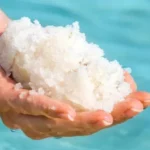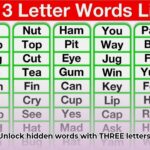Having ants in your house can be a real nuisance, but when you have pets, finding safe and effective ant control methods becomes even more critical. This guide provides a comprehensive approach to eliminating ants while prioritizing the safety of your furry friends. We’ll explore various pet-safe methods, preventive strategies, and what to do in case of an emergency.
Understanding the Risks of Conventional Insecticides
Many common ant killers contain chemicals like permethrin and organophosphates, which can be harmful to pets, causing anything from skin irritation and digestive upset to serious neurological problems. Choosing a pet-safe insecticide is crucial for protecting your four-legged family members.
Pet-Safe Ant Control Methods
Several effective ant control methods won’t put your pets at risk. Here’s a breakdown of safe options:
Bait Stations: Luring Ants to Their Doom (Safely)
Bait stations, like those from Terro, contain a sweet, poisonous bait that attracts ants. The ants carry the bait back to the colony, effectively eliminating the entire population. Tamper-proof designs help keep curious pets out.
Ant Gels: A Discreet and Effective Approach
Ant gels, such as Advion Ant Gel, work similarly to bait stations but are applied directly into cracks and crevices where ants travel. This targeted approach minimizes exposure to pets.
Borate Baits: Low Toxicity with Precautions
Borate-based baits offer a lower toxicity option but should still be kept away from pets, much like any household cleaner. Terro also offers products in this category.
Pet-Safe Sprays: Fast Action, Added Safety
Some insecticide sprays are formulated for use around pets. Always choose products specifically labeled as pet-safe and follow instructions carefully. Ensure the treated area is thoroughly dry before allowing pets back in. Wondercide and MDX Concepts offer pet-safe insecticide options.
Diatomaceous Earth (DE): A Natural Weapon
Food-grade diatomaceous earth (like Harris brand) is a natural powder that dehydrates insects. While generally safe for pets, avoid inhalation. Keep pets away during application.
Natural Remedies: Harnessing Nature’s Power
Natural remedies like a vinegar and water mixture or essential oils like peppermint and tea tree can deter ants. While generally safe, they may be less potent than commercial products. Research essential oil safety for your specific pet, as some oils can be toxic to cats, birds and reptiles.
| Method | Description | Example Products | Pet Safety Notes |
|---|---|---|---|
| Bait Stations | Attract ants with poisoned bait, carried back to the colony. | Terro | Tamper-proof design, keep out of reach if possible |
| Ant Gels | Targeted gel application in cracks and crevices. | Advion | Less accessible to pets |
| Borate Baits | Lower toxicity poison, requires careful placement. | Terro | Keep away from pets |
| Pet-Safe Sprays | Direct contact insecticide designed for use around pets. | Wondercide, MDX Concepts | Allow to dry completely, follow product instructions |
| Diatomaceous Earth (Food Grade) | Dehydrates insects, generally safe but avoid inhalation. | Harris | Keep pets away during/after application until settled. |
| Natural Remedies | Vinegar, essential oils deter ants; research pet safety. | Various | May be less potent; research essential oil safety for specific pets. |
Ant Prevention Strategies
Preventing ants is the best approach. Here’s how:
- Cleanliness: Regularly clean areas where food is present.
- Seal Entry Points: Caulk cracks and crevices to block access.
- Food Storage: Store food, including pet food, in airtight containers.
- Remove Attractants: Eliminate standing water and address any moisture issues.
Application Tips & Precautions
- Follow Instructions: Always adhere to product instructions.
- Keep Out of Reach: Store all ant control products away from pets.
- Ventilation: Use sprays in well-ventilated areas.
- Supervise: Monitor pets after application, especially with sprays or powders.
What to Do in Case of Accidental Ingestion
If you suspect your pet has ingested insecticide, contact your veterinarian or the ASPCA Animal Poison Control Center immediately.
Conclusion: A Pest-Free Home, Happy Pets
With careful product selection, preventative measures, and a bit of vigilance, you can achieve an ant-free home without compromising your pets’ well-being. Remember, your veterinarian is a valuable resource for addressing any pet-specific concerns. Ongoing research is constantly suggesting refinements to our understanding of ant behavior and control, so staying updated on the latest information is always worthwhile.
Delve into the world of woodworking and discover the perfect a woodworking tool used to remove excess wood to refine your craft.
- Unlocking 2-Letter Words with U: The Definitive Guide - April 4, 2025
- Unlock Words with the Letters THREE: Top Unscramble Tools 2025 - April 4, 2025
- Master Scrabble: X & Z Words for High Scores - April 4, 2025















